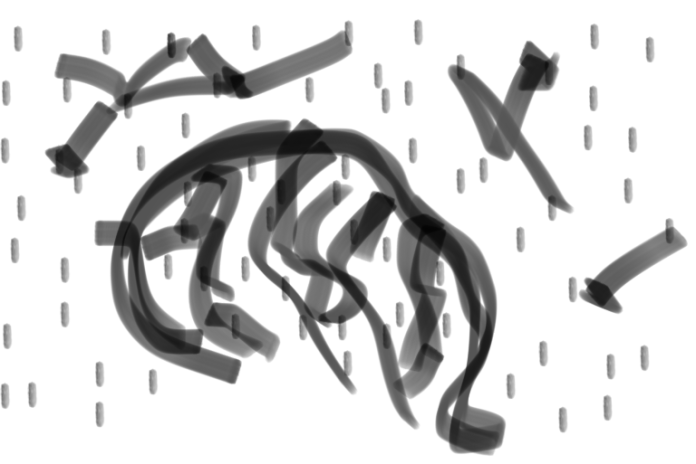

the other day i went for a hike up a mountain near to my home. when i was alone among the trees and ferns and rocks, i felt, as all humans do, a deep connection to the nature around me. this is likely hard wired into us from our very earliest days as hunter gatherers who had no concept of a human-made world apart and separate from nature.
as i was up on the mountain i couldn’t help but feel that i was a part of, and the same as, the rest of nature. that all things were at their core the same thing. that the world around me was conscious to a degree. obviously the degree of consciousness varied. a rock isn’t conscious in the way that a horse is, or in the way that a human is.
for millennia animism was the dominant belief system of the world. animisms posits that plants, trees, rivers, seas, rocks, animals, and potentially, depending the degree in which the concept is extended, all things could be perceived as having consciousness or as having a spirit of some sorts.
animism was eventually superseded as the dominant belief system with the majority of the world’s population. beliefs such as polytheism, dualism and monotheism began to gain support to the detriment of animism. often some the the ideas were adopted into the newer belief systems, but the belief that matter such as rocks and water are conscious things just as animals and humans are was, and is to this day, perceived to be nonsense and pseudo science in the domain of mainstream science. this could very well be true.
recently though, the view that consciousness could be universal to all things, that consciousness is itself a state of matter, has come back into vogue. the term used to describe this idea is panpsychism. pan meaning all, everything and whole, and psyche being soul or mind.
what is notable in the current re-appreciation of panpsychism is the seriousness in which it is being taken in the scientific community. it is seen by many as a potential solution to the hard problem of consciousness. consciousness, with the advent of developments such as ai, is once again very much in the spotlight.
to panpsychists consciousness is a universal property of the universe. inherent in all matter, including subatomic particles.
the brain is being increasingly studied in greater and greater detail, and its complex system is becoming more and more understood by the day. panpsychists argue though that neuroscience helps little in understanding how consciousness itself arises. that even if the mechanisms of the brain are fully mapped that this will only explain how various functions of the brain relate to each other, and that the intrinsic nature of what consciousness is, of what makes you you, and of qualia, is left answered.
it is often taken as a given that consciousness is software to the hardware of the brain’s physical matter. panpsychism posits that the complete opposite might prove to be true. that it is consciousness that is the hardware and that the complex structures of the brain ac as the software.
one of the criticisms often levelled at panpsychism is that it is an example of anthropomorphism. that it is simply the projection of a human experience onto the universe. indeed my mind did turn to the theory of panpsychism when i was walking up on the mountains surrounded by nature. feeling that there was some underlying sameness inherent in all matter.
another criticism of panpsychism is that it doesn’t really solve the hard problem of consciousness at all. that it still leaves the question as to how a complex unified consciousness could arise from the simple basic consciousness of individual particles unanswered. this is indeed a problem that would need answering, though the idea of one form of more complex consciousness arising from already conscious matter appears a lot less forbidding a problem to answer than consciousness appearing from non conscious matter.
in panpsychism there are varying degrees of consciousness, with there being a greater degree of consciousness in the brain of a human than that of a monkey or a mouse. the degree to which the system (the brain) is complex would result in the degree to which consciousness is complex.
the idea that the physics of the universe is the software to the hardware of consciousness, is indeed a strange one that seems to contradict the way in which we are used to conceiving of reality. this would therefore place the idea in a long line of theories, including many of today’s most accepted theories, that also seem counterintuitive.
read now: memes, genes & hosts
– if you liked this post, then why not follow us on twitter to keep up to date with our latest posts

Pingback: memes, genes & hosts
Pingback: yuval noah harari, dataism & homo sapiens as an obsolete algorithm
Pingback: religion as video game
Pingback: spiders, webs & cognitive offloading